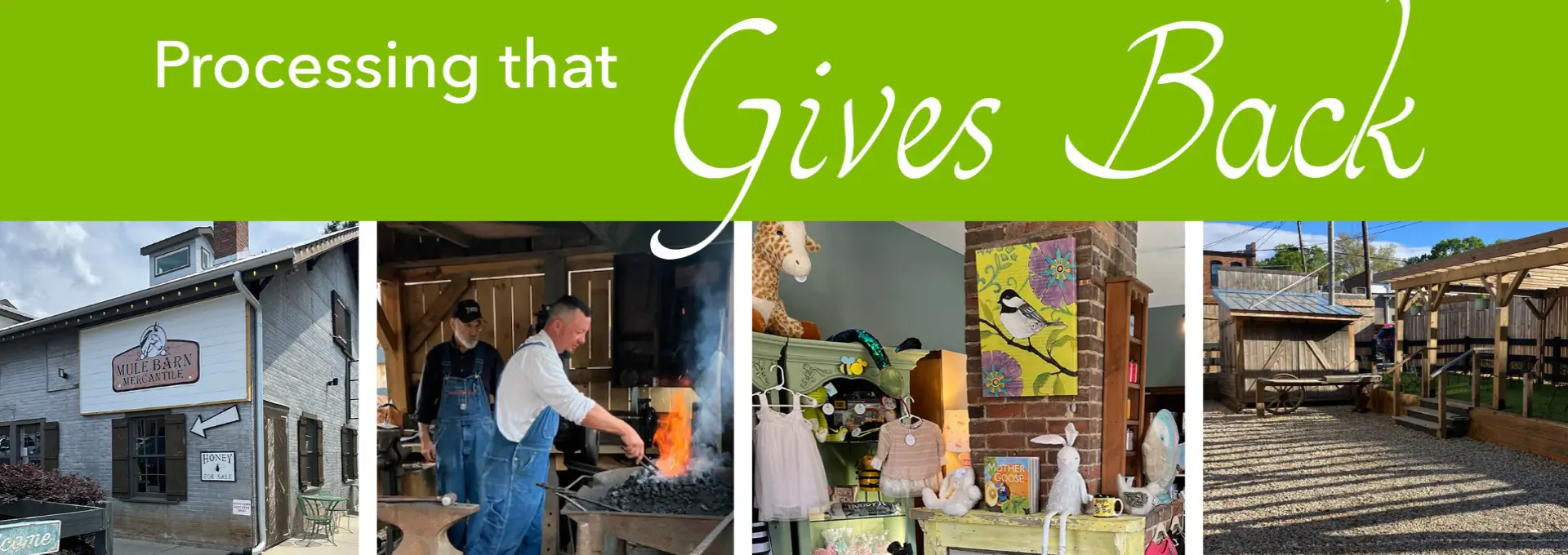While others may have seen an 83-year-old boarded up and forgotten livery stable in Waxhaw, North Carolina, located about 22 miles southeast of Charlotte on NC-16, Mark Hernig saw a piece of history that ought to be saved and brought back to life. After purchasing the building in 2015, Hernig renovated the old Mule Barn and asked the Union County Entrepreneurs (UCE) to help develop a use for the structure.
Upon trying a number of different ideas for the building over the next several years, UCE, its board members and Karen Johnson, Director of Union County Entrepreneurs Business Incubator, created the Mule Barn Mercantile to benefit the community, be a part of the restoration of the historic downtown area, and provide a way for fledgling business owners to begin their startup businesses. UCE developed a small business incubator program focusing on retail entrepreneurship, a youth training program, and a mentorship program for those striving to franchise and build service businesses. Today, 87 local entrepreneurs are able to develop their own brands, sell and share a coveted location in the Mule Barn of downtown Waxhaw.
Loyd Pennington, long time Waxhaw business owner and former president of the Waxhaw Business Association, said, “Entrepreneurship is the key to this country and the Mule Barn Mercantile provides opportunities to build an enterprise around the dreams of local small business owners where nothing else exists.”
Johnson and UCE Board Members screen the entrepreneurs to ensure they are unique to Waxhaw and want to learn successful business practices of owning their own business. Johnson said, “The entrepreneurs are not just renting space, but must follow the Barn’s established business model which aims to keep the Barn’s merchandise fresh while meeting the needs of the consumer base in Waxhaw. The desire is not to be in competition with other businesses in town, but to walk alongside newer businesses that add to the town’s appeal. Also, if an entrepreneur has a goal of moving into their own brick and mortar location, the UCE has resources to help them grow in that direction.”
Wilhelmina (Wil) Dees is one who used the resources of UCE and advice of Johnson when she left a secure corporate job to open a small business selling Alpha-Stim, a prescriptive medical device. She said, “Karen really spent time to help me grow my business. She taught me to be resilient, to keep going no matter what, and to always look for new opportunities.”
The donations from Extra Credit have been an important part of the financial growth of UCE. Pennington remembers, “In the early days, the funds from Extra Credit were used to promote the space, create the signage, and help pay for the utilities. Those funds were vital.”
Johnson commented on the monthly payment from Extra Credit, “The contribution from Extra Credit may seem small to some, but the monthly amount is a huge blessing to us! Because we are a very small business incubator trying to keep our focus on the needs of entrepreneurs, we are using the contributions to make our new concept a reality to help people with small businesses.”

